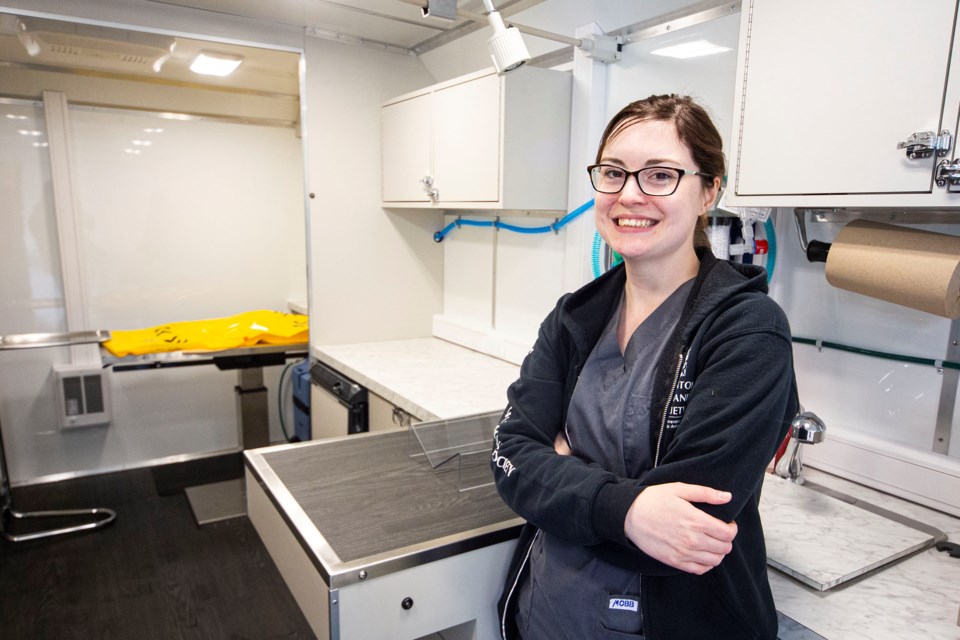The Edmonton Humane Society is ever creative with new ways to help pet owners be responsible with their animals. It started its Prevent Another Litter Subsidy (PALS) program in 2012 to allow people of low income to gain access to the organization’s spaying and neutering service at its northwest Edmonton location.
Now, PALS is hitting the road to bring the service to the people.
“It's been a really successful program; we've actually been able to spay and neuter over 6,000 animals since the program was started. What we found was that one of the barriers that people had was actually getting to us,” said Liza Sunley, CEO of the Edmonton Humane Society.
“What we wanted to be able to do is really move that barrier and take our services on the road.”
The Mobile PALS Unit was launched for a pilot program this week. Though Sunley didn’t speculate on a goal for how many animals could be reached through the mobile unit, she did say that the EHS has high expectations in order to fulfill its mandate of advancing animal welfare through animal sheltering, adoption and other programs and services, and community engagement.
“We need to get ahead of problems. We want to be able to prevent unwanted litters. We want to be able to support people to do the right thing. It's healthier for our animal population overall. It's healthier for the individual animal being altered. This is one of those preventative things that we can do,” she said.
The Mobile Unit will roll out with a contingent of professionals on board including its medical team with a veterinarian and two registered veterinary technologists, plus administrative staff as well to help.
Appointments for the PALS program are fully booked for 2019, though applications for 2020 will re-open in late December. Appointments are typically booked four to six months in advance. It is open to citizens of Edmonton and surrounding communities with low income (proof must be provided). Accepted applicants must pay only the administration fee of $25 per cat and $50 per dog.
Those interested in finding out more, including organizations that would like to partner with the EHS to bring the unit to their community, are encouraged to email [email protected].
TRIVIA
Spaying and neutering your pets:
• Prevents unwanted litters and reduces pet overpopulation;
• Reduces unwanted behaviours such as roaming, spraying, mounting, persistent barking or meowing;
• Decreases the likelihood of fight-related injuries;
• May increase the lifespan of the pet; and
• Reduces risks of medical problems, including certain types of cancer.
Each year, unplanned and unwanted litters create millions of homeless pets. Spaying and neutering is one of the steps that the EHS can take to get at the root of pet overpopulation, preventing unwanted litters and reducing the number of homeless pets.
Did you know?
Cats can give birth to three litters a year, with litters ranging in size from 6 to 12 kittens. Dogs can give birth to two or three litters a year, with litters ranging in size from 5 to 15 puppies depending on the size of the dog. Over five years, the impact of spaying or neutering just one cat or dog could prevent approximately 248,832 unplanned puppies or kittens in the Edmonton area.
In 2018 alone, EHS completed 989 spay/neuter surgeries through the PALS program!
Courtesy of EdmontonHumaneSociety.com


-jf-c.jpg;w=120;h=80;mode=crop)

